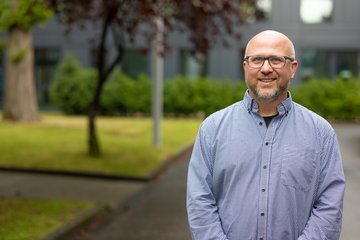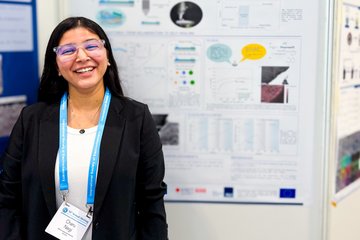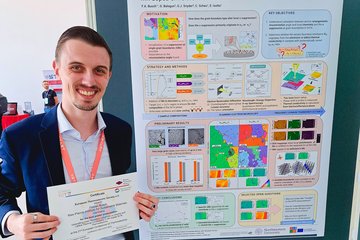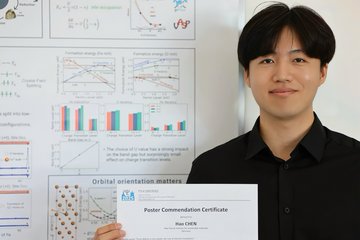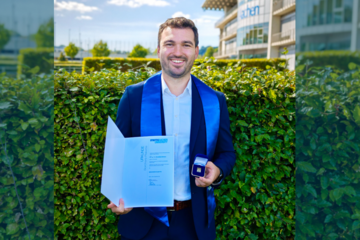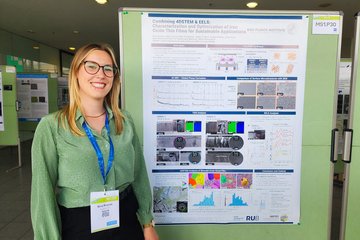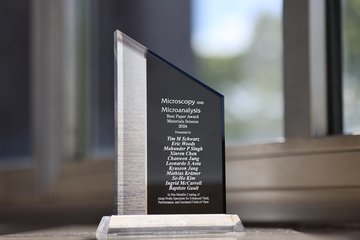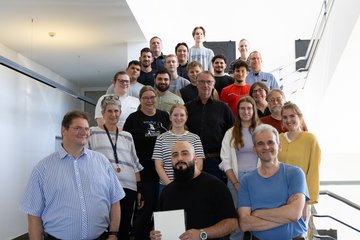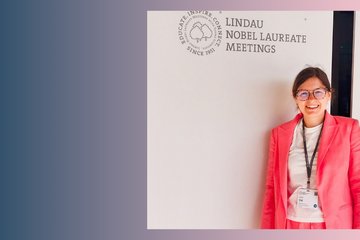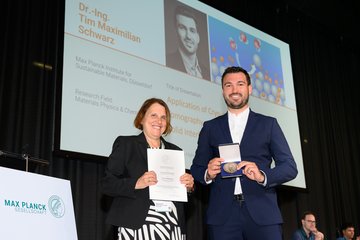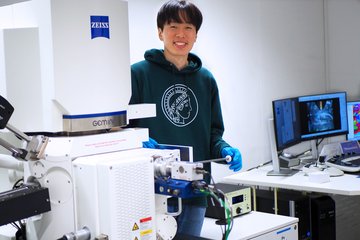All genres
181.
Journal Article
From generalized stacking fault energies to dislocation properties: Five-energy-point approach and solid solution effects in magnesium. Physical Review B 92 (6), 064107 (2015)
182.
Journal Article
Improved method of calculating ab initio high-temperature thermodynamic properties with application to ZrC. Physical Review B 91 (21), 214311 (2015)
183.
Journal Article
A first principles investigation of zine induced embrittlement at grain boundaries in bcc iron. Acta Materialia 90, pp. 69 - 76 (2015)
184.
Journal Article
Random phase approximation up to the melting point: Impact of anharmonicity and nonlocal many-body effects on the thermodynamics of Au. Physical Review B 91 (20), 201103 (2015)
185.
Journal Article
Understanding anharmonicity in fcc Materials: From its origin to ab initio strategies beyond the quasiharmonic approximation. Physical Review Letters 114 (19), 195901 (2015)
186.
Journal Article
Ab initio-based bulk and surface thermodynamics of InGaN alloys: Investigating the effects of strain and surface polarity. Physica Status Solidi B 252 (5), pp. 855 - 865 (2015)
187.
Journal Article
Interplay of strain and interdiffusion in Heusler alloy bilayers. Physica Status Solidi (RRL) - Rapid Research Letters 9 (5), pp. 321 - 325 (2015)
188.
Journal Article
Multiscale description of dislocation induced nano-hydrides. Acta Materialia 89, pp. 50 - 59 (2015)
189.
Journal Article
Computationally efficient and quantitatively accurate multiscale simulation of solid-solution strengthening by ab initio calculation. Acta Materialia 85, pp. 53 - 66 (2015)
190.
Journal Article
Connecting semiconductor defect chemistry with electrochemistry: Impact of the electrolyte on the formation and concentration of point defects in ZnO. Surface Science 631, pp. 190 - 195 (2015)
191.
Journal Article
Identification of bulk oxide defects in an electrochemical environment. Faraday Discussions 180, pp. 97 - 112 (2015)
192.
Journal Article
Ordering phenomena and formation of nanostructures in InxGa1−xN layers coherently grown on GaN(0001). Physical Review B 90 (24), 245301 (2014)
193.
Journal Article
Impact of Mn on the solution enthalpy of hydrogen in austenitic Fe–Mn alloys: A first-principles study. Journal of Computational Chemistry 35 (31), pp. 2239 - 2244 (2014)
194.
Journal Article
Origin of the unusually strong luminescence of a-type screw dislocations in GaN. Physical Review B 90 (24), 241201 (2014)
195.
Journal Article
A generalized plane-wave formulation of k · p formalism and continuum-elasticity approach to elastic and electronic properties of semiconductor nanostructures. Computational Materials Science 95, pp. 280 - 287 (2014)
196.
Journal Article
Ab Initio Predicted Impact of Pt on Phase Stabilities in Ni–Mn–Ga Heusler alloys. Journal of Phase Equilibra and Diffusion 35 (6), pp. 695 - 700 (2014)
197.
Journal Article
Macroscopic elastic properties of textured ZrN–AlN polycrystalline aggregates. Physical Review B 90 (18), 184106 (2014)
198.
Journal Article
Structural stability and thermodynamics of CrN magnetic phases from ab initio calculations and experiment. Physical Review B 90 (18), 184102 (2014)
199.
Journal Article
Temperature dependent magnon-phonon coupling in bcc Fe from theory and experiment. Physical Review Letters 113 (16), 165503 (2014)
200.
Journal Article
Negatively charged ions on Mg(0001) surfaces: Appearance and origin of attractive adsorbate-adsorbate interactions. Physical Review Letters 113 (13), 136102 (2014)
